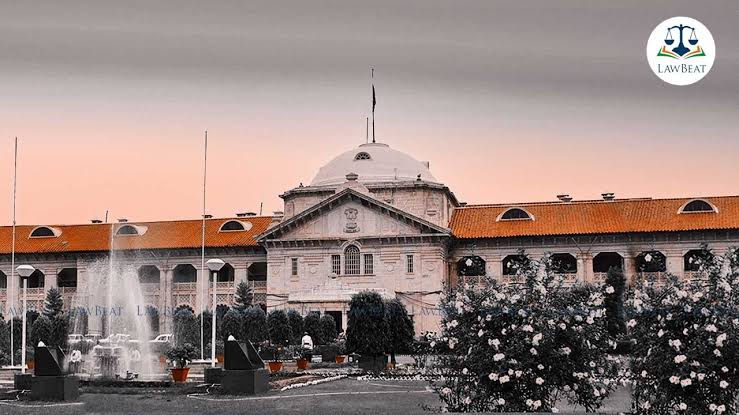Surprising That No Science Subject In Madarsa: Allahabad HC Strikes Down UP Madarsa Board Act

The bench observed that it was clearly established that education under the Madarsa Act is certainly not equivalent to the education being imparted to the students of other regular educational institutions recognized by the State Primary and High School and Intermediate Boards
The Allahabad High Court on Friday has struck down the Uttar Pradesh Board of Madarsa Education Act 2004 as unconstitutional on the grounds that it is against the principles of secularism and against article 14, 21, 21A of the Indian Constitution.
A division bench of the high court comprising Justice Vivek Chaudary and Justice Subhash Vidyarthi was hearing a petition filed by one Anushuman Singh Rathore who challenged the constitutionality of the UP Madarsa State Board Act 2004 and provisions of the Right of Children of Free and Compulsory Education Act 2012.
The high court in its order recorded that Under Article 21-A State is bound to provide compulsory and free education to children between the age of 6 and 14 years, that is from class I to class VI. Further it is the duty of the State to provide education which is secular in nature.
“It cannot discriminate and provide different type of education to children belonging to different religions. Any such action on part of State would be violative of secularism, which is part of the basic structure of the Constitution of India Such an action on the part of the State is not only unconstitutional but also highly divisive of the society on religious lines. To maintain unity in the society is a primary duty of the State and all its authorities. Any policy of the State which is divisive of society on religious lines is violative of the constitutional principles. Where any legislative Act of the State is violative of the basic structure of the Constitution, one of the core principles of which is secularism; it is bound to be struck down,” the court said.
The high court was surprised to find out that there is no regular Science subject from Classes 9th to 12th and Science was also an optional subject
“…the students of Class XII have to study Theology (Sunni) and Theology (Shia), Arabic, Persian, Urdu and General English, but the General English taught to the students of Class XII is of the level of NCERT books of Class X. They can study only one of the subjects from amongst General Hindi, Logic & Philosophy, Social Science, Science, Tib (Medical Science) or Typing. Home science is an optional subject for girls only. The students upto Class XII also do not have an option to study Maths as a subject. The optional subject Science taught to Class XII students is of the level of Classes VIII, IX and X. Whereas in State Board, Physics, Chemistry and Biology are separate subjects. In the same manner, subject Tib (Medical Science) is taught as an optional subject from Classes 9th to 12th. It is surprising to note that there is no regular Science subject from Classes 9th to 12th and Science is also an optional subject. Without giving basic education of Science particularly Biology, Medical Science education is being provided in the name of Tib to the students of Classes 9th to 12th ,” the judgement reads.
Additionally, the bench observed that it was clearly established that education under the Madarsa Act is certainly not equivalent to the education being imparted to the students of other regular educational institutions recognized by the State Primary and High School and Intermediate Boards and, therefore, the educations being imparted in Madarsas is neither ‘quality’ nor ‘universal’ in nature.
The high court further said that it is not mandatory for a citizen of this country to be secular by nature and a citizen can have faith in his own religion or in some/every religion or may not have faith in any religion.
“However, the State cannot do so. The State has to remain secular. It must respect and treat all religions equally. The State cannot, in any manner whatsoever, discriminate between religions while performing its duties. Since providing education is one of the primary duties of the State, it is bound to remain secular while exercising its powers in the said field. It cannot provide for education of a particular religion, its instructions, prescriptions and philosophies or create separate education systems for separate religions,” the judgment reads.
The high court also observed that While the students of all other religions are getting educated in all modern subject denial of the same quality by the Madarsa Board amounts to violation of both Article 21-A as well as Article 21 of the Constitution of India.
Case title: Anshuman Singh Rathore vs UOI &. Ors
